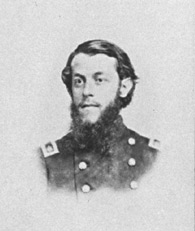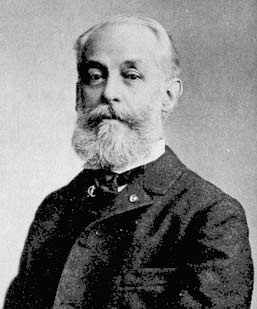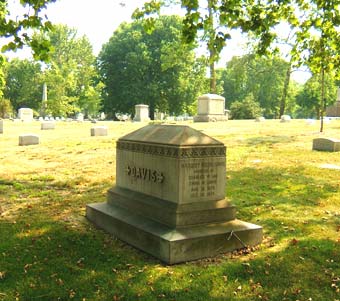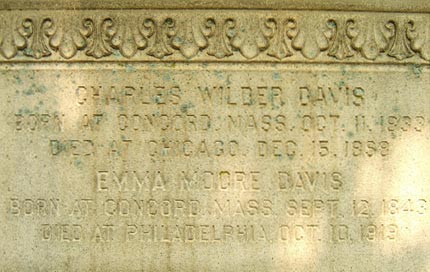 Lt. Col. Charles Davis
Lt. Col. Charles Davis
Davis was born on October 11, 1833 in Concord, Massachusetts.
In 1854, he migrated to Chicago and worked as a bookkeeper or bookseller—military records say both in different places—or as a bookkeeper for a bookseller. Since Davis and Colonel Luther Bradley were friends, going back to a time before the formation of the regiment, it's quite possible that they worked together for the firm of F. (Francis) Munson, Booksellers and Stationers.
Davis' familiarity with things-military went back to five years of militia activity in Massachusetts prior to his moving to Chicago. He was the first adjutant of the regiment, his commission as lieutenant and adjutant dating to October 15, 1861. He worked closely with Cumming and Bradley in late 1861 in recruiting and forming the regiment.
Davis was promoted to major of the regiment in September 1862. He was severely wounded at Stones River. Bradley wrote that Davis was wounded so severely that he would lose his right arm; a doctor in mid-1863 described the wound as a compound comminuted [multi-fragmentary] fracture of the right ulna, severely injuring the flexion of the fingers and the ulnar nerve. Davis kept his arm, but was away from the regiment for six months, healing. On July 17, 1863 a Chicago doctor recommended extension of his disability leave, as "the wound is still unhealed and the general health is such that he will be unable to resume his duties... and is at present unable to travel." In August, 1863, Davis was finally able to return to the regiment.


